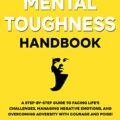Mental health apps have become essential tools. They provide accessible support and resources for mental well-being.
Also Read
In today’s fast-paced world, managing mental health is crucial. Mental health apps offer convenient support right at your fingertips. These apps help track moods, provide therapy exercises, and offer relaxation techniques. They can connect users with professionals for guidance. Easily accessible, they fit into busy schedules.
Many apps cater to various needs, from stress relief to anxiety management. They are cost-effective alternatives to traditional therapy. With user-friendly interfaces, these apps are easy to use. They empower individuals to take charge of their mental health. For many, mental health apps are a valuable resource for maintaining balance and well-being.
Buying Guide On Mental Health Apps
mental health apps buying guide
1. Identify your needs
choose an app that fits your mental health goals. Some apps focus on meditation, while others offer therapy or mood tracking.
2. Check user reviews
read reviews from other users. Learn about their experiences. High ratings often indicate quality.
3. Compare features
look at the app’s features. Some might offer guided sessions. Others may provide community support.
4. Consider cost
many mental health apps have free versions. Paid versions usually offer more features.
5. Evaluate privacy policies
ensure your data is safe. Check the app’s privacy policy. Look for encryption and data protection.
6. Assess professional support
some apps connect you with licensed therapists. This can be very beneficial.
7. Trial periods
many apps offer trial periods. Test the app before committing. Find out if it meets your needs.
8. User interface
a user-friendly interface makes a big difference. You should feel comfortable navigating the app.
9. Accessibility
ensure the app is accessible on your device. Check for compatibility with your smartphone or tablet.
10. Customization options
customization can enhance your experience. Look for apps that allow you to tailor sessions to your needs.
Conclusion
Mental health apps offer valuable support for many people. They provide tools to manage stress, anxiety, and depression. With these apps, users can track their mood and practice mindfulness. They can also connect with therapists for professional help. These digital tools are easy to access and use.
They bring mental health care to our fingertips, making it more available. While not a complete replacement for traditional therapy, they serve as helpful aids. They can complement professional treatment and support daily mental wellness. So, exploring mental health apps can be a useful step.
They might just be the extra help you need. Start today and see how they can improve your well-being.






















